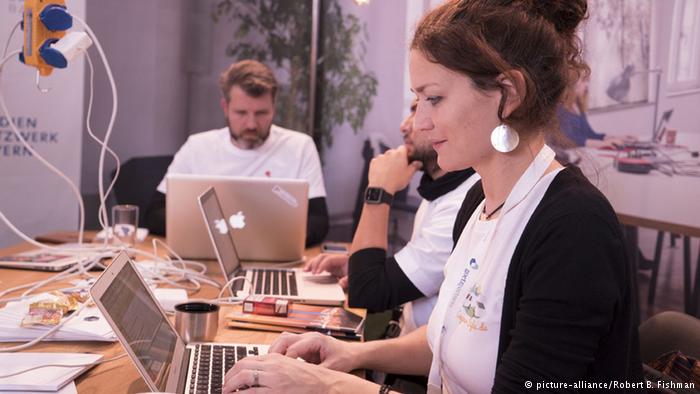Women’s Day in Germany: Still a long way to go
 Women’s Day isn’t much of a thing in Germany. This is a pity considering that the holiday is the perfect occasion to highlight how far the country has come – and what still needs to change in terms of gender equality.
Women’s Day isn’t much of a thing in Germany. This is a pity considering that the holiday is the perfect occasion to highlight how far the country has come – and what still needs to change in terms of gender equality.
Happy International Women’s Day! That’s not something that you hear in Germany very often. The March 8 holiday isn’t really celebrated here. Unless you happen to hear about it on the morning news, Women’s Day could very well pass you by. The reasoning is the same that boycotters of Mother’s Day or Valentine’s Day use: we don’t need a special day to honor our women/ mothers/ sweethearts. We do that every day!
That is true – to an extent. As women in 21st century Germany, we certainly have more opportunities and less constraint than our sisters in other countries or those who came before us.
Women in Germany have the right to vote and to run for office – the most powerful person in the country is a woman. We have an anti-discrimination law that allows a woman who is treated worse because of her gender or sexual orientation to sue her boss or whomever else is discriminating against her. And sexual harassment, rape or domestic violence are illegal and accepted as bad by large parts of society.
These are all things we shouldn’t take for granted. Just 100 years ago, women in Germany couldn’t vote or get elected – their voice wasn’t heard in the political discourse at all. According to the World Health Organization, more than 200 million girls and women alive today in 30 countries across Africa, Asia and the Middle East were subjected to female genital mutilation (FGM). And in Russia, where it is estimated that domestic abuse kills a woman every 40 minutes, President Vladimir Putin has just signed an amendment into law which makes “moderate” violence within families an administrative offense – punishable by a fine or a mere 15 days in jail.
On paper, life as a woman in Germany today is great – we’ve got the basics covered. But just because we have a female chancellor and husbands aren’t legally allowed to beat their wives doesn’t mean we can pat ourselves on the back and congratulate ourselves for all the progress made.
Everyday sexism is very much alive in Germany. According to the Glassdor labor market research institute, women earn around 5.5 percent less than their male counterparts. Women are more likely to have jobs that pay less and when they do have the same jobs as men, they often get paid less for exactly the same work. In Germany you’re more likely to meet a female kindergarten teacher and a male engineer than the other way around.
And then there are the jokes, the catcalling, the “did he really just say that” remarks at work. They are an infuriating part of every woman’s life and it’s no different in Germany. Some men think that a woman should be grateful for every lewd comment directed at her and accept it as a compliment. Or that whatever sexual insinuation they make is so funny that we are sure to respond to it by being immediately attracted to them. Newsflash, computer salesman: even if I’m excited about my new laptop and you tell me that you “looove” making women happy before you slip me your number, I will not go out with you. That is not how it works.
Let’s be bold and make a change, guys: treat women with respect. This has been said countless times before, but it still isn’t reaching every boy and man out there, so it bears repeating. Once every woman is really treated with respect, I might accept the spiel about not needing a holiday to highlight the need for gender equality anymore.
Author: Carla Bleiker
Editor: Marjory Linardy
Carla Bleiker is a German journalist. She works for Deutsche Welle’s English News and Science departments and graduated from Columbia University’s Graduate School of Journalism. You can reach her on Twitter @cbleiker






